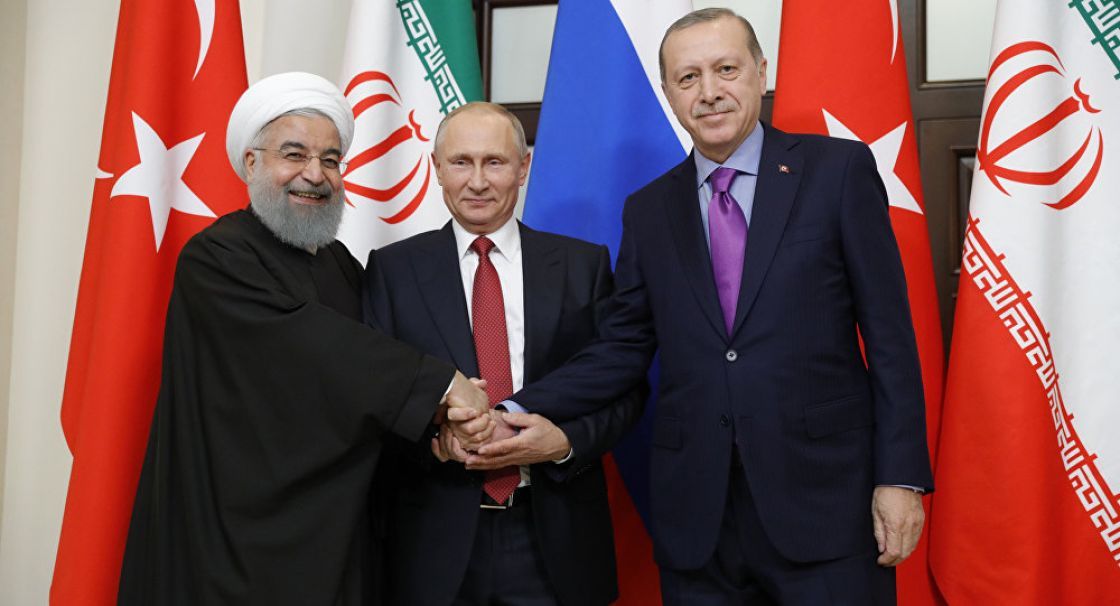- Editorials
- Posted
The Trilateral Agreement as the Exit of the Stage
The latest developments in the war in Syria are heading towards the détente that marked the recent stage in general. In continuation of this détente, which we witnessed its last episode in the Syrian south, the opposite attempts continue for blowing up the agreements. As Idlib is the candidate region to deal with in the next stage. Many parties, each in its own style, are making repeated attempts to blow up the Astana Agreement, which was based on the tripartite understanding that emerged earlier this year between Putin, Erdogan and Rouhani in Sochi. They are even trying to undermine the tripartite understanding itself.
Attempts to blow up this tripartite agreement are clearly aimed at ending the truce agreements that meet the aspirations of the Syrian people, to create a rift between the guarantors in Astana, and thus impede the political process that resulted from Geneva, Astana and Sochi, and impede the tendency to form a constitutional committee among other files in the path of the political solution in Syria and the implementation of UNSC resolution 2254.
What is the shape of Syria after the elimination of terrorists and the extension of state control over all Syrian territory? It is a problematic issue in light of different wishes of the Syrians. How should this form of control be? and what are the necessary change processes? It is a subject that the obstructers are trying to avoid and delay as long as possible, to delay the elaboration of a constitutional reform and the consequent elaboration of the elections and the other subsequent entitlements that are supposed to be laid on the Syrian discussion table.
Despite the great changes resulting from the impact of this tripartite understanding – which is based on the new international balances and regional necessities – the Turkish position, which has not yet been completed its change of direction, is still subject to a number of pressures, the most prominent of them seem to be: the particular (wrong) Turkish vision of the Kurdish issue, which the Turkish government considers to be uncrossable lines. Turkey has developed a large number of its attitudes and vision of its regional position as a major influential force in the region based on the Kurdish issue in the first place. In addition, there are several regional and international actors who are working on fueling this attitude.
The great change in the Turkish position needs to be enhanced and developed in order to block all attempts aimed at creating a rift in the cooperation resulted from the Russian-Turkish-Iranian understanding in the region, and not to allow any kind of such attempts, regardless of who stands behind them.
The Russian-Turkish-Iranian understanding is the guarantying factor at the current stage to achieve stability and security in the Middle East.
It seems that the tension in the relations between the three parties, resulting from the provocations, falls within the framework of the futile attempts, which have no destiny but to fail, even though they are deliberate and intended by certain international, regional, Arab and local parties.
Kassioun Editorial, Issue No. 870, July 16, 2018


